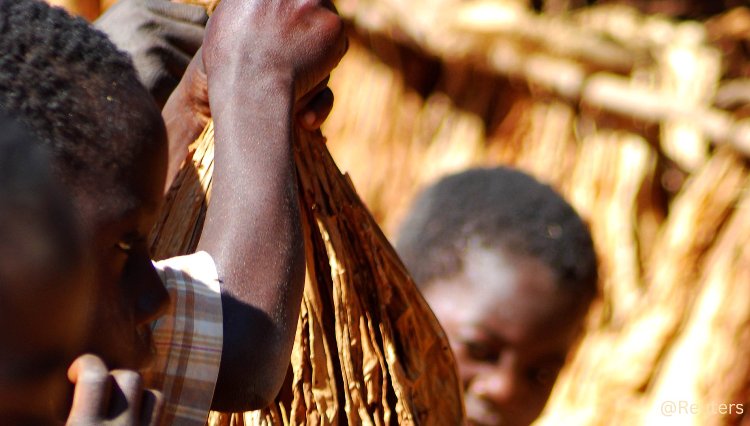WHO Links Tobacco Exposure to Child Stunting, Urges Stronger Global Action
The document, the eleventh in WHO’s series of tobacco knowledge summaries, consolidates current evidence on the connection between tobacco exposure and stunted child growth.

The World Health Organization (WHO) has released a new publication highlighting the harmful role of tobacco use in child stunting, a condition that affects nearly 150 million children worldwide, primarily in Africa and Asia. Stunting—defined as impaired growth and development due to chronic malnutrition and other health risks—puts children at greater risk of disease, delayed development, and premature death.
The document, the eleventh in WHO’s series of tobacco knowledge summaries, consolidates current evidence on the connection between tobacco exposure and stunted child growth. It is designed to serve as a resource for health professionals, policy-makers, and public health advocates working to protect children’s health.
Tobacco and Child Growth: A Dangerous Link
The publication underscores how tobacco exposure, both direct and indirect, contributes to stunting:
-
Parental smoking: Children with smoking parents face higher risks of impaired growth, and the risk increases with the level of exposure.
-
Maternal smoking during pregnancy: Strongly associated with preterm birth, low birth weight, and restricted fetal growth—all predictors of stunting by age two.
-
Heavy maternal smoking: Leads to more severe harm to the unborn child, with long-lasting impacts beyond infancy.
-
Quitting improves outcomes: Evidence shows that cessation during pregnancy significantly improves child growth prospects.
Stunting is officially defined as a child’s height-for-age being two standard deviations below the WHO Child Growth Standards, and it has lifelong impacts, including reduced learning capacity, weakened immunity, and diminished economic potential.
The Role of Tobacco Smoke in Stunting
Tobacco smoke contains thousands of toxic chemicals that directly harm fetal and child development. Exposure during pregnancy is linked not only to restricted growth but also to congenital anomalies and higher risks of chronic diseases later in life.
After birth, second-hand smoke exposure worsens risks, contributing to respiratory infections, delayed cognitive development, and additional stunting risks. This makes stunting largely preventable, provided effective measures are in place to protect mothers and children from tobacco exposure.
“Stunting robs children of their right to grow, learn and thrive,” said Dr. Etienne Krug, Director of the Department of Health Determinants, Promotion and Prevention at WHO. “Children with parents who smoke face a higher risk of stunting.”
WHO Calls for Urgent Global Action
The organization is urging countries to fully implement the WHO Framework Convention on Tobacco Control (WHO FCTC) and adopt its MPOWER package, a proven set of strategies for cutting tobacco use and reducing exposure. Key recommendations include:
-
Protecting pregnant women and children from second-hand smoke by strengthening smoke-free laws.
-
Supporting tobacco cessation services, with a focus on expectant mothers.
-
Enforcing smoke-free environments in all indoor public spaces, workplaces, and public transport.
-
Raising awareness about the dangers of maternal and second-hand smoking.
Looking Forward
While the existing body of research strongly links tobacco exposure to child stunting, WHO stresses the need for further studies to better understand the biological mechanisms and to measure the full benefits of smoking cessation on growth outcomes.
The publication argues that addressing tobacco-related stunting is not only a health priority but also a step toward achieving global development goals, including those on child health, nutrition, and equity.
“Protecting pregnant women and reducing their exposure to tobacco smoke is critical to reducing stunting, improving survival and development, and advancing global health goals,” WHO concludes.
ALSO READ
UNICEF Warns Childhood Obesity Surpasses Underweight in Global Health Crisis
TERN Group Clinches $24M to Bolster Global Healthcare Workforce
Mpox: Declared Safe but Still a Global Health Concern
End of Mpox Global Health Emergency: WHO's Strategic Decision
Decolonizing artificial intelligence: Rethinking global health futures










